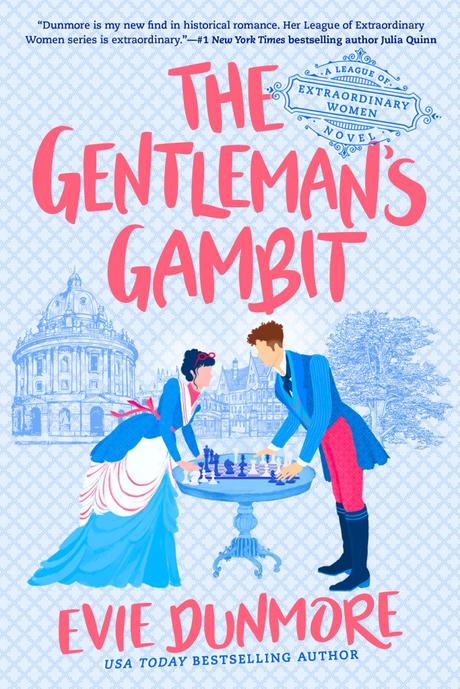Evie Dunmore is my favorite writer of historical romances. This is the fourth (and sadly, the final) book in her League of Extraordinary Women series, which i about four friends at Oxford in the 1880s working on women’s suffrage.

Dunmore writes in great detail about the political and legislative road to women’s suffrage in Britain. It’s not just about the vote; key to attaining some equality is the proposed Married Women’s Property Act. Under the existing laws, women lose all rights to their money and property the minute they marry. And of course they aren’t expected to do anything but get married.
Catriona Campbell has watched three of her friends fall in love, despite everything they know about the gender inequality of the system. Catriona is fortunate to have a father who supports her love of research and writing, and who puts no pressure on her to marry. When her father asks her to help a colleague, Elias Khoury, with some ancient artifacts, she’s surprised to meet someone who seems to understand her. Still, she doesn’t trust her growing feelings for him, having been burned in the past.
One thing I really appreciate in a romance is when the characters don’t keep secrets from each other. Dunmore creates significant reasons for these characters to mistrust and mislead each other; but that never lasts for long. The honesty between her characters is refreshing and it’s nice to see the miscommunication trope done away with. Instead, Dunmore creates challenges for each of her couples that transcend simple misunderstandings and get at complicated economic, racial and societal issues. This book relies a bit more on tropes than the previous three (like Elias’ just happening to see Catriona naked), but the tropes are small parts of the larger plot.
I struggled with the third book (Portrait of a Scotsman) a little bit, because Hattie was the least relatable of the four protagonists. I liked this book better because I really liked Elias and I identified quite a bit with Catriona. She’s awkward, smart, direct, introverted, and anxious – all things I could relate to. I also really liked that this book had a Middle Eastern hero, though I felt we didn’t get to know him as well as the other heroes because he’s not in his home country. I also really appreciated the storyline about the theft of ancient artifacts by colonizing countries and wealthy travelers, and how they should be returned to their countries of origin.
There’s a side storyline where Catriona is trying to overturn a law that prevents women from leaving their husbands – this felt like an unnecessary add-on, maybe because the author needed to keep Catriona engaged in the suffrage effort, and it didn’t make a lot of sense. Otherwise, I love all the historical detail, but would have preferred just to focus on the Property Act.
In addition to Dunmore’s historical detail about politics, advocacy and the legislative process (which I love but some readers find a bit much), her writing is very steamy. I think she excels at building up sexual tension, and I also love how her heroines, because they are feminists, see sexual pleasure as something they have a right to, whether married or not.
Because it’s the fourth book, we see a bit more of the friends and their partners than in the previous books, and it’s a nice way to wrap up the series (but sad as well to have it end). The ending of Catriona’s story felt a bit rushed in order to do this wrap up. But when I really enjoy a book, I always leave wanting more, and that was certainly the case here.
Note: I received an advance review copy of this book from NetGalley and Berkley/Penguin Random House. This book was published December 5, 2023.

